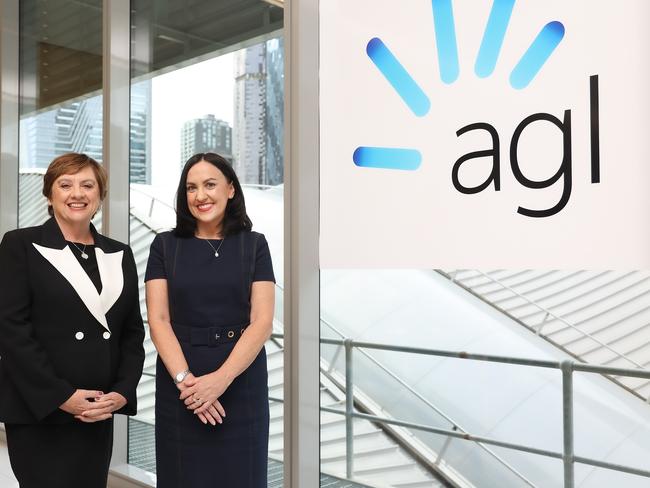
“They came out of nowhere,” said Christine Corbett in reference to the consortium.
The former Australia Post executive will become boss of the green retailer AGL Australia if a controversial company split wins shareholder support.
After AGL outright rejected both an initial $7.50-a-share tilt followed by an improved $8.25-a- share offer, the investment duo dramatically quit the race, the tech billionaire tweeting on March 6 the consortium was “putting our pens down with great sadness”.
Mr Cannon-Brookes led a bold plan to reinvent AGL by shutting its coal plants early – by 2030 – and turning the power giant into a renewable-focused energy retailer.
AGL’s board showed little appetite to hold talks and refused a push by some shareholders to at least open up its books, potentially luring a higher offer.
Ms Corbett has said AGL had moved on, even as talk bubbles away that the suitors could yet return with another pitch. “We’ve not heard from them since we rejected their second offer so who would know,” she said in an interview ahead of AGL releasing demerger documents in mid-May.
The rejected takeover may have been an unwelcome distraction, but it may have also galvanised AGL’s board in selling their case for the demerger.
“We had no problem in determining it was not in the best interest of shareholders,” AGL Australia chair-elect Patricia Mackenzie said. “The market is showing us there is value in the transition and valuing the changes that we’re creating in the transition. What the board wanted to ensure is our shareholders have the benefit of that value moving forward.”

Still, several of the company’s big shareholders remain unsure about the demerger pitch.
Top 10 investor VanEck said its meeting with AGL management underlined the need to make some sort of move. “What I did come away with was that they kind of really pushed home the fact that, if they don’t do anything at all – if they leave the company as it currently is – they’re going to potentially lose funding lines because they’ll struggle to get lending capacity for a high-carbon, coal business,” said VanEck Australia’s deputy head of investments and capital markets, Jamie Hannah.
“And that would impact the more profitable part of their business, which is the distribution arm. So they were really feeling under pressure to do something and the share price has been falling over five years generally. And this was the best option that they came up with.”
The outstanding question was whether a demerger was the best device to unlock value, Van Eck said. “They’ve got to start the hearts and minds on this one. And everyone is just waiting,” Mr Hannah said, referring to the demerger scheme documents.
Washington H Soul Pattinson, which has a major stake in AGL, expects takeover interest may again emerge if the demerger deal does win approval.
“We own the stock, and we saw clear value in their retail business and that’s why we’re still on the register,” Soul Patts chief investment officer Brendan O’Dea told The Australian. “We think that’s quite an appealing asset. So I think it wouldn’t be at all surprising to us to see some corporate interest in the AGL Australia business should the separation go ahead.”
Analysts have tipped the retail-focused company will be an attractive takeover target after the split takes place, with Ampol, Shell, Total, Enel and Iberdrola all potential suitors along with the return of the Brookfield and Cannon-Brookes consortium.
Ms Corbett said AGL Australia’s best defence was delivering a strong business. “I think the way we defend ourselves is the way we actually run our business,” she said. “A focus on our customer, delivering against our results and really being really clear with our strategy and our execution.”


AGL Energy’s demerger has been a tough sales job from the start. Throw in an unexpected takeover bid from one of Australia’s richest men, Mike Cannon-Brookes, backed by the deep pockets of Canada’s Brookfield, and the 180-year old electricity utility has endured a volatile few months.